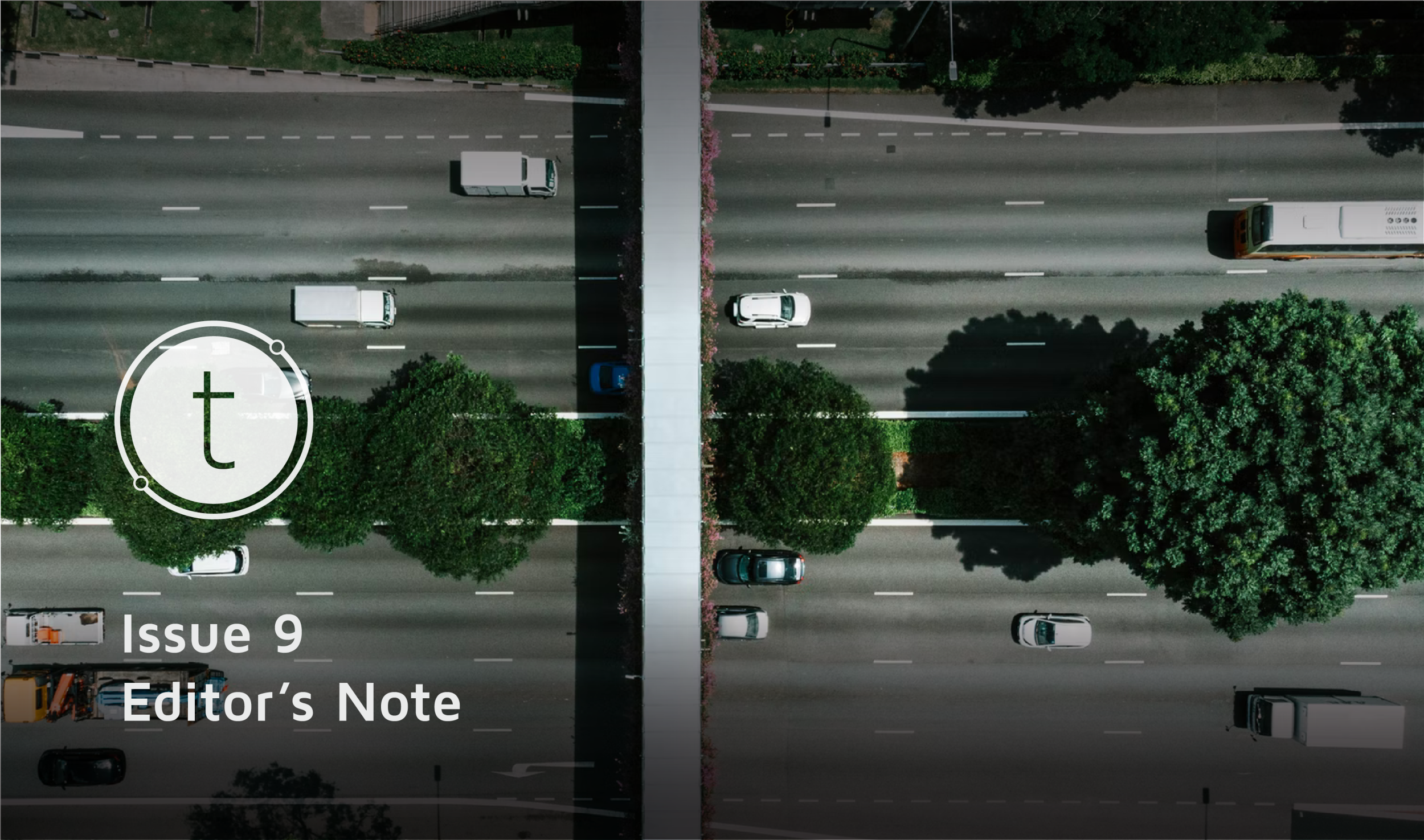
Editor’s Note
This issue of Transfers revolves around driving. In a sense, that’s appropriate: Transfers is a journal of transportation research, and American transportation also revolves around driving. Most people, for most trips, travel by car. Cars get a lot of people where they need to go, which is why we rely so heavily on them. But all of us using cars causes problems: drivers slow each other down via congestion, create pollution, and injure and kill people inside and outside automobiles. On top of all that, cars demand space, and space, in our urban areas, is the most precious commodity there is. Our challenge is to balance the car’s personal benefits against its social costs: to let automobiles help us access our cities, but not let them swallow our cities whole.
This balance, it’s fair to say, has so far proven elusive. The car should be a good servant; we’ve let it become a bad master. Can we do better? This issue’s contributors think so. Our first article suggests that e-bikes are a good substitute for many car trips, but many drivers don’t even know e-bikes exist. Bikeshare programs could change that. Our second article argues that transportation policy often goes wrong because too many people don’t understand an important but deceptively tricky idea: induced demand. Our third article observes that while the social costs of driving are much higher in some places than others, the main tax we levy to offset those costs — the gas tax — doesn’t vary nearly as much. Our fourth article notes that older people no longer limit their driving as much they used to. Why not, and what does that mean for transportation planning? Finally, our opinion piece suggests a minor amendment to the tax code that could have an outsized impact on commuting behavior.
Our hope with this issue, and all issues of Transfers, is that this research can become food for thought — and fuel for practice.

Michael Manville
Editor-in-Chief
